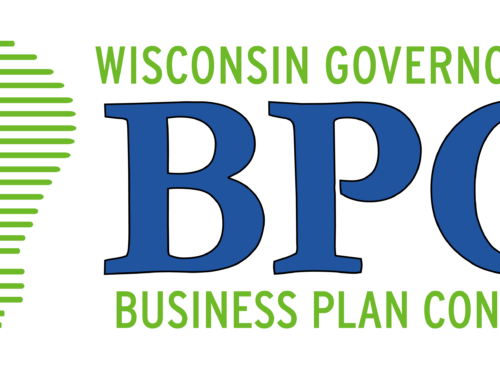There’s something about Wisconsin that makes it fertile ground for tech startups using blockchain technology to solve concrete, real-world challenges.
For proof, just look at Wisconsin Inno’s 2018 “25 under 25” list. First and second on the list are the students behind Marquette University’s Blockchain Lab, Davis Marklin and Alec Shaw. Right behind them is Darek Urben, founder of the cryptocurrency portfolio management platform Coinigy—with cryptocurrency being one of the most common applications of blockchain technology.
Coinigy has around 80,000 users, half of whom pay around $20 each per month for unlimited access to its trading platform and exchange data. Despite 65% of its users living outside the U.S., Coinigy remains based in Waukesha. That’s because, the website explains, “Midwestern values embody integrity and honesty. We apply these tenets to everything we do. Security, stability and integrity are the mainstays of our business.”
Coinigy isn’t alone, according to entrepreneur Mike Adam, who teaches blockchain technology at Marquette University: “Here in the Midwest, we have that blue-collar mentality: work, work, work. Startups have to prove they have customers before they go out seeking funds. It’s harder to start here because you have to work your butt off, prove it, and get customers before seeking funding to grow. It forces bright ideas to push further, and it weeds out the weak ideas.”
Adam also works with the Marquette Blockchain Lab, which aims to foster innovation and collaboration across a range of industries as more and more businesses adopt these new technologies.
Blockchains are encrypted databases managed by a peer-to-peer network rather than a central authority. As blocks of encrypted data are created, each one is validated by the network and linked to the previous entry in the chain. Because no one person has control over the entire chain, and because each block is uniquely linked to the ones before and after it, it is impossible for a single user to alter or add information.
The Blockchain Lab’s most recent event was the 2019 Digital Economies Summit in April, which showcased the latest developments in blockchain technology and provided a chance for developers, academics and businesses to work together. Based on their work at the lab, Marklin and Shaw also launched Euphrates Consulting to advise and educate companies on the future of blockchain.
The energy for blockchain innovation goes beyond Marquette. “Milwaukee has really strong buy-in from tech leaders and from leaders in general. The number of universities in the Milwaukee area provides a real robust talent pipeline—not just for software, but also in sales, design and all skill sets important to startup.” Companies are benefiting from the design and business talent coming from the Milwaukee Institute of Art and Design, Milwaukee School of Engineering, and UW-Milwaukee.
Cryptocurrency may be the most well-known application for blockchain and distributed ledger technology, but many Wisconsin startups are focused on applying these technologies alongside machine learning, IoT and other emerging technologies to industries such a manufacturing, finance and health care. Wisconsin’s business community is taking notice, with companies like Northwestern Mutual and Advocate Aurora Health providing resources and support.
Thanks to a glut of Silicon Valley startups that raised money on blockchain and failed to deliver, many investors dismiss it as simply a buzzword. Adam explains why he feels they’re wrong: “It’s often said that blockchain is a problem in search of a solution, but I totally disagree. Blockchain is a solution that can solve a ton of problems. That’s what we’re trying to do—show how we are providing an actual solution.”
His company, Chain Tracks, uses blockchain and distributed ledgers as the basis for “trustless audit” documentation. The company’s technology offers an additional layer of security for industries that require extensive documentation, such as defense or aerospace, by encrypting and storing an unchangeable digital representation of each document in a blockchain. In the event of an audit, auditors can trust they are accessing the complete record; in the event of a data breach, the company can trust they have a secure record of the original documentation.
Chain Tracks is blockchain-agnostic (meaning that its clients can use can use any blockchain platform), but uses Ethereum as its default public platform. For companies that want an extra layer of security, Chain Tracks is also building a private network. Companies can contribute some of their computing power to become a node in the network—and get some “skin in the game,” so to speak.
Another company delivering results in this area is Milwaukee-based SteamChain. By aggregating and displaying machine performance data, SteamChain enables original equipment manufacturers (OEMs) to deploy a “machine-as-a-service” mode. Manufacturers can pay an OEM based on equipment performance over time, rather than as on one-time upfront payment, and maintenance contracts can be automatically executed.
“The OEM can sell the outcome, not the machine,” says SteamChain CEO Michael Cromheecke. With blockchain technology, “they can monitor it and monetize it.”
The rise of this new technology is just another example of how Wisconsin’s workers are united by integrity, hard work and the drive toward innovation—whether they’re working on the manufacturing floor or in the cloud.









FOLLOW US